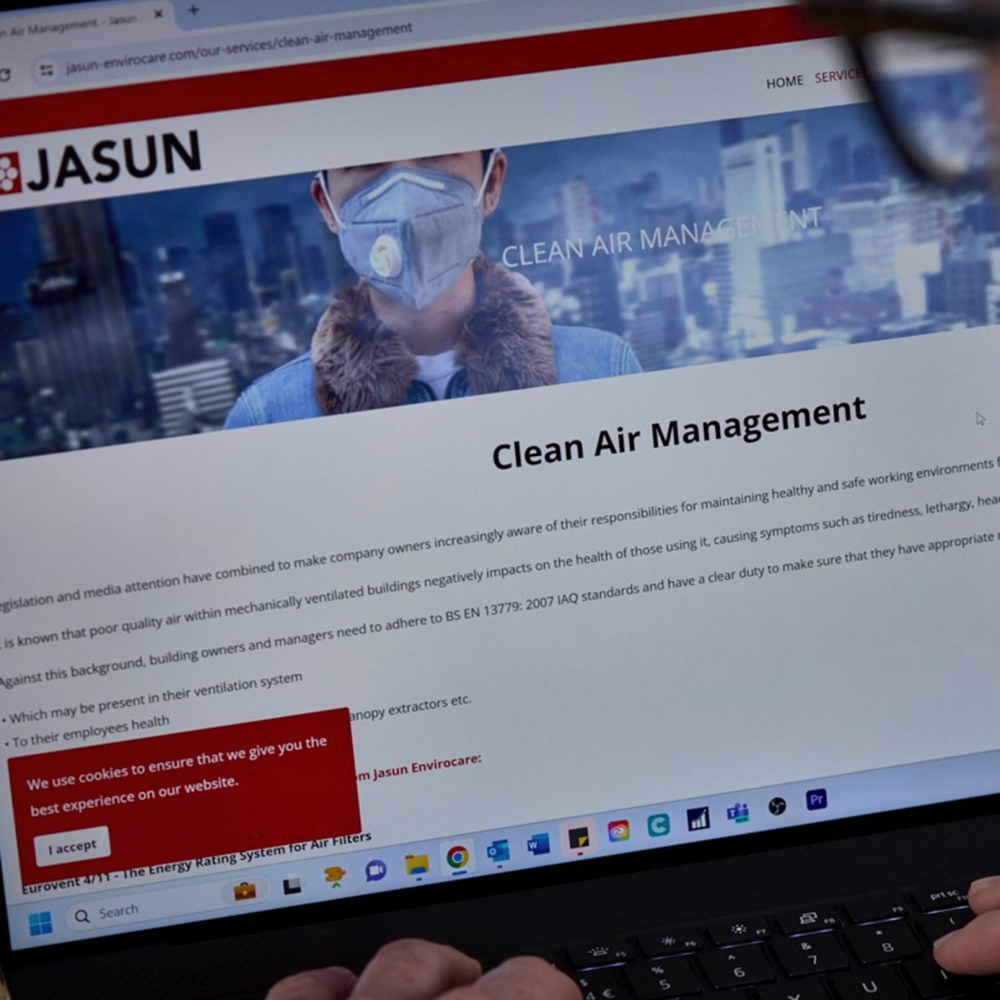
Indoor Air Quality (IAQ) is a growing concern, especially as we spend up to 90% of our time indoors – whether at home, work, or in public buildings.
Poor IAQ can have serious implications for health, productivity and overall well-being.
Health impacts
Contaminants such as dust, mould spores, volatile organic compounds (VOCs) and bacteria can accumulate in indoor environments. Exposure to these pollutants can lead to respiratory issues, allergies, fatigue and even long-term health conditions.
Vulnerable groups, including children, the elderly and those with pre-existing health conditions, are particularly at risk.
Workplace productivity
In commercial and industrial settings, poor IAQ can affect employee performance and increase absenteeism.
Clean air contributes to better concentration, fewer sick days and a more comfortable working environment.
Employers have a duty of care to ensure safe air quality under UK health and safety regulations.
Legal & environmental considerations
UK regulations, such as COSHH and the Workplace (Health, Safety and Welfare) Regulations 1992, require employers to maintain a safe indoor environment.
Regular maintenance of HVAC systems, air filters and ventilation is essential to meet compliance and reduce energy consumption.
The path to better IAQ
Improving IAQ involves regular monitoring, effective filtration, and professional cleaning of air systems. Investing in high-quality air filters and scheduled maintenance can significantly reduce airborne pollutants and improve overall air hygiene.
To sum up
Indoor Air Quality isn’t just a comfort issue – it’s a health, safety and legal priority.
Whether you’re managing a business, school, or healthcare facility, ensuring clean air indoors is essential for all.
How to get our help
Contact us today and chat to our team who can provide free expert advice; there’s no obligation to buy from us!